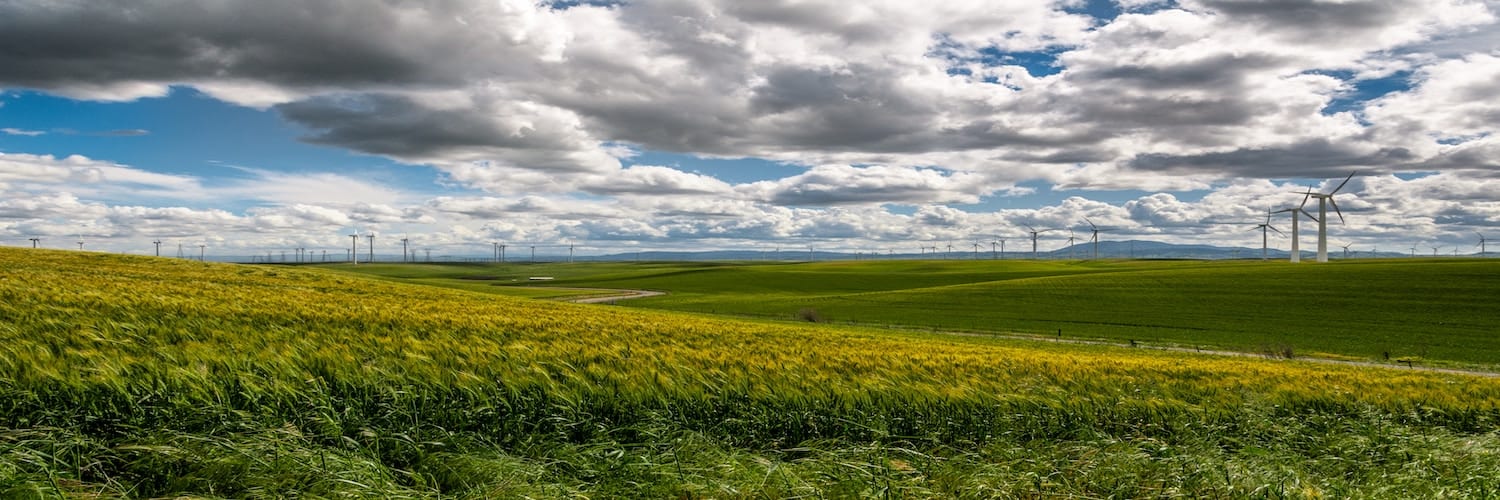Community or citizen-based cooperatives are booming in the European renewable energy field. There are hundreds of these cooperatives in Germany and Denmark, and dozens in France (e.g. Enercoop), Belgium (e.g. Ecopower), the United Kingdom (e.g. Energy4All), Italy and the Netherlands. New, very promising initiatives are also starting to emerge in Southern and Eastern Europe. In order to exert more influence in energy debates, these cooperatives have joined forces in the European federation REScoop.eu – “REScoop” stands for “Renewable Energy Source Cooperative”.
Factors driving this emergence…
Several factors explain the emergence and development of these cooperatives. First of all, they express the frustration felt by many citizens, who want renewable energy sources (such as sun, wind or biomass, which they see as “common goods”) to be exploited locally, rather than being privately appropriated by companies that often have no connection with the region in question. They also represent a form of resistance to the numerous renewable energy projects that do not take into account the views of local residents, or that consider them merely as stakeholders to be compensated. In addition, the collectives respond to a desire for greater transparency regarding the greenness of the energy produced, as this transparency is often complicated by unreliable traceability. Finally, they are able to mobilise part of citizens’ enormous savings reserves by encouraging them to choose local and meaningful projects.
Many citizens are no longer happy to be passive consumers. They don’t want to leave energy production and supply entirely in the hands of large companies. In this respect, the activities of cooperatives are part of a wider movement that advocates moving from making demands to taking economic action via social and solidarity-based initiatives.
…and obstructing it
However, outside countries such as Germany and Denmark, renewable energy cooperatives are facing significant resistance, which is slowing their expansion. In most countries, energy production systems are highly centralised. The legislation is tailored to large companies and does not always make it possible for community groups to invest in the production, and especially the supply, of energy. In addition, it is often difficult to raise capital from a large number of citizens.
Numerous actors, first and foremost banks and public authorities, are struggling to understand and recognise these new “hybrid” organisational forms, which are a combination of company and community group.
The benefits of productive networking
It was precisely to deal with these obstacles that the renewable energy cooperatives decided to join forces via REScoop.eu, which has been in place for a number of years now. In just a few years, Rescoop.eu has managed to unite more than 1,300 cooperatives and become a major contributor to “energy democracy” questions. Although they are not the largest players on the market, through REScoop.eu cooperatives have managed to influence the European energy debate to place citizens at the centre of the issue as fully fledged economic players. In this respect, it has strengthened the way that citizens’ needs are taken into account in European directives, such as the “Winter Package” (“Clean Energy for All Europeans”), or the electricity directives and regulations currently being drafted.
How can we explain that a very recent network, comprising organisations that are themselves new and difficult to understand, has managed to carve out a niche for this citizen-centred economic model? Our study identifies three main roles played by REScoop.eu in this respect.
Firstly, the network has strengthened its members’ collective reflexivity in the renewable energy sector. The founding members met regularly to define their place in the sector and to affirm their added value. They began by condemning the contradictions of the sector, in particular the private appropriation of renewable energy sources as “common goods” and the high barriers to entry that are detrimental to small actors – barriers that are at odds with the free market principles advocated by the European Commission. Rather than questioning this free market rationale, the members of REScoop.eu have used it to condemn the oligopolistic state of the energy market. The network has lobbied for citizens to be recognised in European legislation, presenting itself as an actor capable of running an economic project focused on citizens, in contrast to the energy companies, whose main aim is to maximise profit. Our study shows that emphasising the place of citizens at the heart of energy transition, as coordinated by REScoop.eu, has had a genuine impact on the approach of the European Commission, which could hardly object to this vision (at least in its discourse). This plea for greater recognition of citizens paved the way for a more active promotion of the cooperative model as a way of reconciling market, civic and environmental approaches in a more holistic vision of renewable energy.
Once this awareness-raising effort had been launched, the network focused on codifying the proposed organisational model. It drew on the cooperative model, which was the unifying platform for bringing together a series of disparate models and practices. The network grafted onto this model an environmental component and a community dimension. Through its use of collective reflection and shared practices, the network acted as an experimental area for designing and communicating the renewable energy cooperative’s road map. It developed a charter and a series of best practices based on this model, enabling new initiatives to identify with the model and to rapidly assimilate it.
The third work stream was the promotion of the REScoop model. This involved creating alliances at a European level, in addition to developing a line of argument and shared visual elements, which enabled the network to move beyond the regional or national influence developed by each cooperative at its own level. The network united a large number of actors dissatisfied with European energy policy and concerned with the vision of citizens (communities): environmental movements and ecological transition players (e.g. Greenpeace and Friends of the Earth), cooperative movements and social and solidarity-based economy networks (e.g. Cooperatives Europe), networks of local authorities (e.g. the Covenant of Mayors), consumer representatives, etc. Thanks to this collective voice, they are now known as key players in the sector and are widely supported by diverse actors.
The rapid and fruitful development of REScoop.eu is an interesting example, not only in terms of its specific contribution to the democratisation of the European energy market, but also as a source of inspiration for other sectors. The development of REScoop.eu is an example of the new forms of social and solidarity-based economy networks. It shows how citizens and communities, initially disparate and economically weak, can join forces to establish themselves as international economic players. By moving beyond an approach based solely on challenge or advocacy, REScoop.eu embodies new forms of community-based economic action in order to oppose the concentration of economic power in the hands of large companies and to realign the market towards the general interest.

I am an Associate Professor in Entrepreneurship and Organization at emlyon business school, Casablanca campus. I hold a PhD in Management from HEC Liège (University of Liège) and I spent my post-doctoral research stay at Saïd Business School (University of Oxford). My research topics include entrepreneurial teams and the emergence and diffusion of « hybrid » organizational forms emerging from social and cooperative entrepreneurship. I study these topics in fields such as fair trade, recycling and renewable energy, with a particular interest in Africa.
More information on Benjamin Huybrechts:
• His CV online
• His ResearchGate page
• His Academia page
• His Google Scholar page
Further readings…
- Haugh H., Huybrechts B. (2017). The Roles of Networks in Institutionalizing New Hybrid Organizational Forms: Insights from the European Renewable Energy Cooperative Network. Organizations Studies, forthcoming. DOI: 10.1177/0170840617717097.
Read abstract online
- Huybrechts B., Mertens, S. (2014). The Relevance of the Cooperative Model in the Field of Renewable Energy. Annals of Public and Cooperative Economics, 85 (2): 193-212. DOI: 10.1111/apce.12038.
Read abstract online


Recent Comments